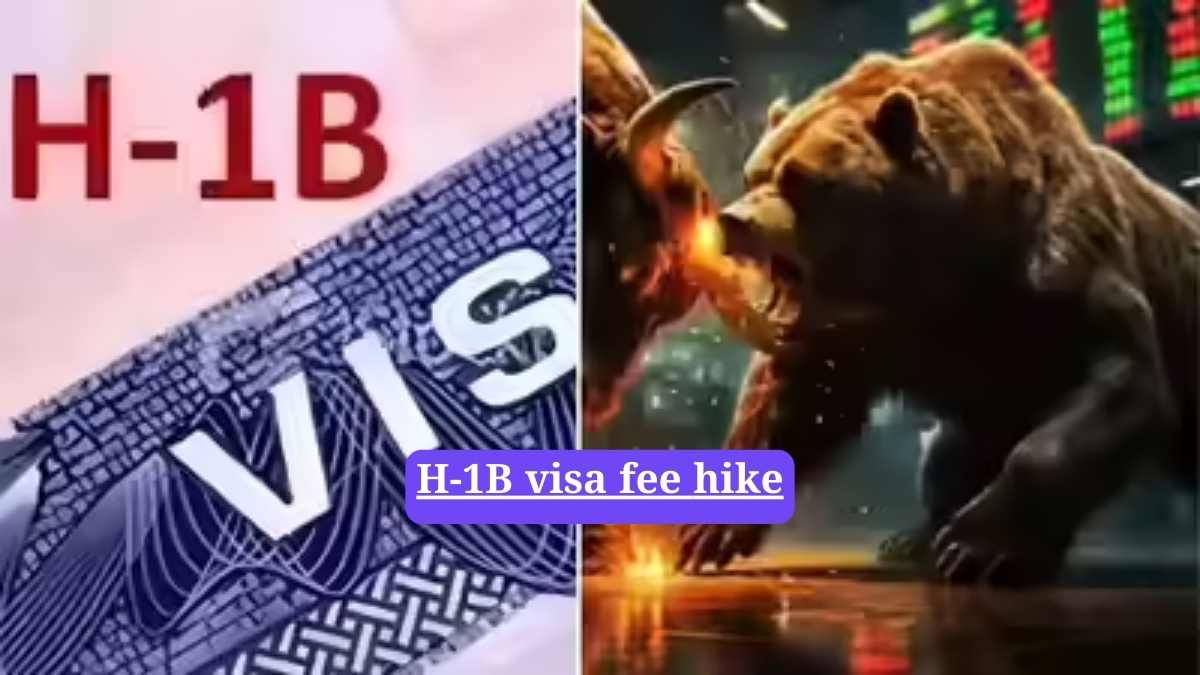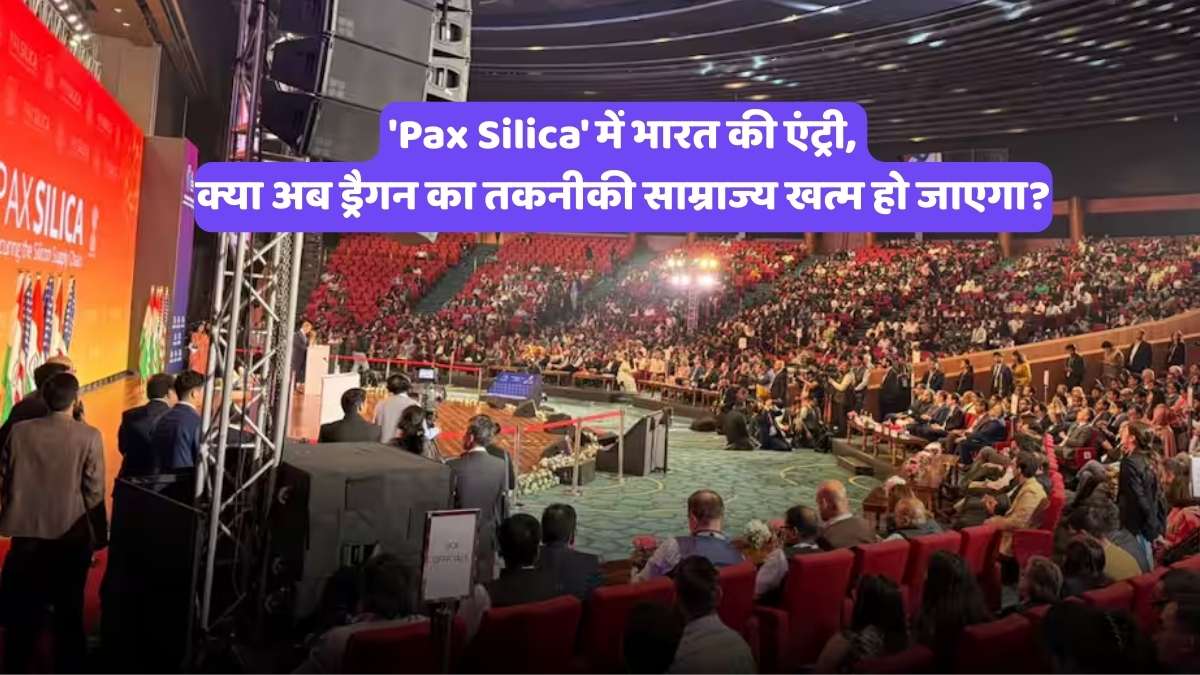Join WhatsApp
Join NowH-1B visa fee hike: A shockwave of panic ripped through the Indian stock market on Monday morning as investors woke up to a nightmare scenario. Dalal Street witnessed a brutal sell-off, with the nation’s celebrated IT sector at the epicenter of the carnage. The cause? A devastating policy bombshell from the Trump administration in Washington: an unprecedented, jaw-dropping hike in the H-1B visa fee, which has sent shivers down the spine of India’s $283 billion technology industry.
A Sea of Red: The Immediate Market Carnage
The reaction was swift and merciless. As the opening bell rang, the Nifty IT index—a barometer for the health of India’s tech giants—plunged over 3%, acting as a dead weight on the entire market. The benchmark Sensex tumbled 487 points, while the Nifty 50 also slipped deep into the red. It was a bloodbath, and the casualties were the very companies that have been the flag-bearers of India’s global success.
Tech Mahindra was the hardest hit, its stock price nosediving by nearly 6% in a matter of minutes. The pain was just as acute in the mid-tier space, with firms like Persistent Systems, LTIMindtree, and Mphasis—all heavily reliant on new H-1B visas—each shedding over 5% of their value. Even the titans of the industry were not spared. Tata Consultancy Services (TCS) dropped over 2%, Infosys slipped 2% to Rs 1,510.20, Wipro shed nearly 3%, and HCLTech fell close to 2%. By mid-morning, not a single stock in the Nifty IT index was trading in the green.
The timing of this announcement couldn’t have been worse. After a period of extreme volatility, Indian IT stocks had just begun a fragile recovery. A recent softening of Trump’s tone on trade tariffs had given investors a sliver of hope that the worst was over. Friday’s visa shocker has shattered that hope, rekindling fears of spiraling costs and shrinking profit margins for a sector already fighting a global demand slowdown and weak earnings.
The $100,000 Shocker: What the New H-1B Rule Really Means
The new rule imposes a staggering one-time fee of $100,000 (approximately Rs 88 lakh) on new H-1B petitions filed by companies seeking to place skilled foreign workers in the United States. These are the very visas that have long been the gateway for India’s brightest tech professionals to work on-site with American clients.
There is a crucial nuance: the fee does not apply to renewals or extensions for existing H-1B holders. Analysts say this limits the immediate financial hemorrhage but does little to mitigate the long-term, strategic threat to the industry’s business model.
The End of an Era? Impact on the Indian IT Business Model
For decades, the Indian IT services industry was built on a powerful economic principle: cost arbitrage. It was significantly cheaper to send a highly skilled Indian employee to the US than to hire a local American employee with the same skillset. This new $100,000 entry fee brutally attacks that advantage.
“The cost arbitrage between sending an Indian employee vis-à-vis hiring locally will reduce substantially,” explained one market expert. This forces Indian IT companies into a difficult corner, forcing them to fundamentally rethink their hiring and pricing strategies.
While behemoths like TCS and Infosys have the scale and diversified business to potentially absorb these higher costs, the real pain will be felt by the mid-tier firms. These companies are the engine of job growth but are more dependent on a steady stream of new H-1B visas to serve their clients. They now face a daunting challenge to their very survival. In the long run, this policy could force companies to accelerate offshoring (moving more work back to India) or significantly increase local hiring in the US—both of which could put a strain on profitability.
A Brutal Year Gets Worse
This latest blow comes at a time when the IT sector is already on its knees. Year-to-date, TCS is down 23%, Infosys has slipped 18%, and Wipro has lost nearly 15%, reflecting deep investor anxiety over a global tech recession. The Trump administration’s visa bombshell now threatens to completely derail any hope of a recovery. The Indian IT dream, built on the promise of global opportunity, is facing its biggest defensive battle yet.


















